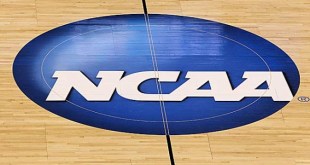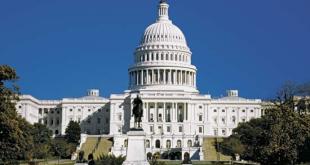Just months ago, the New York legislature passed a much publicized law authorizing and regulating online fantasy sports in the state. That law has now come under attack. Four New York citizens – backed by an anti-gambling government reform group – filed suit last Wednesday against New York Governor Andrew Cuomo and the state gambling commission, alleging that New York’s new law violates the state’s constitutional prohibition on gambling expansion. The lawsuit, however, likely faces a lengthy, uphill climb.
Last November, New York became the epicenter of the highly publicized debate over the legality of fantasy sports, specifically “daily” fantasy sports (DFS), when New York Attorney General Eric Schneiderman issued cease-and-desist letters to the DFS industry’s two leading operators, DraftKings and FanDuel. According to Schneiderman, the companies’ DFS offerings constituted “illegal gambling” under New York law. As a result, he demanded that they stop accepting “wagers” from New York residents. The fight between the state’s attorney general and the DFS operators then took to the courts. There, the attorney general was able to obtain a preliminary injunction from a state judge ruling that there was a likelihood of proving DraftKings’ and FanDuel’s DFS contests ran afoul of New York’s constitutional and statutory prohibition of gambling. That order, however, was later stayed by the appeals court.
Schneiderman’s lawsuit was rendered moot – and most charges were eventually voluntarily dismissed by the attorney general[i] – when the New York legislature passed the “Interactive Fantasy Sports” law earlier this summer.[ii] Under the law, an “interactive fantasy sports contest” is defined as:
a game of skill wherein one or more contestants compete against each other by using their knowledge and understanding of athletic events and athletes to select and manage rosters of simulated players whose performance directly corresponds with the actual performance of human competitors on sports teams and in sports events.
The law also adopts language similar to that used in the federal Unlawful Internet Gambling Enforcement Act, which exempts fantasy sports contests meeting certain criteria from its broad prohibitions against online gambling operations. Accordingly, New York’s Interactive Fantasy Sports law requires that contest operators ensure that:
- The value of any prizes and awards offered to players is established and made known to such players in advance of the contest, and such value is not determined by the number of players or the amount of any entry fees paid by such players;
- All winning outcomes reflect the relative knowledge and skill of the players and are determined predominantly by accumulated statistical results of the performance of individuals in sports events;
- No winning outcome is based on the score, point spread, or performance of a single sports team, or any combination of such teams;
- No winning outcome is based solely on any single performance of an individual athlete in a single sport or athletic event; and
- No game or contest is based on any collegiate sport or athletic event, any high school sport or athletic event or any horse racing event.
Importantly, the recently enacted law provides that “[i]nteractive fantasy sports contests registered and conducted pursuant to the provisions of this chapter are hereby authorized.” The law further states that contests meeting the law’s definition of “interactive fantasy sports” (1) are not unlawful games of chance, but rather, contests based upon the skill and knowledge of the participants; and (2) are not illegal wagers on future contingent events, because the fantasy sports contestants have control over which players they choose and the outcomes of the contests depend on how a contestants’ fantasy roster choices compare to the performance of other contestants’ roster choices. It also provides for a litany of robust consumer protections, including minimum age requirements, parental control procedures, advertising restrictions, and registration and reporting conditions.
Nonetheless, the recent lawsuit, coordinated by nonprofit Stop Predatory Gambling group, seeks a declaratory judgment declaring that the New York law is “unconstitutional” because it impermissibly expands commercial gambling in New York in contravention of Article I, Section 9 of the New York State Constitution. Article I, Section 9 reads, in pertinent part:
except as hereinafter provided, no lottery or the sale of lottery tickets, pool-selling, book-making, or any other kind of gambling, except lotteries operated by the state[,] … except pari-mutuel betting on horse races … and except casino gambling at no more than seven facilities as authorized and prescribed by the legislature shall hereafter be authorized or allowed within this state …
According to the Stop Predatory Gambling plaintiffs, “interactive fantasy sports and, in particular, DFS, constitute gambling” that falls within this express prohibition of the constitution.[iii] As such, the complaint intimates that a constitutional amendment was necessary before the law could be passed[iv] and argues that its enactment was therefore improper.
New York courts have held that, if the legislature runs afoul of well ingrained precepts of a state constitution, court intervention—no matter how unpopular – is proper.[v] With the complaint’s prayer for relief requesting that the court declare the Interactive Fantasy Sports law “null and void,” there’s very real concern that the law could be stricken from the books. That said, the plaintiffs likely face a long, uphill climb to accomplish that goal.
The hurdle to successfully attack the constitutionality of laws duly enacted by the elected representatives of the people is high. New York’s Court of Appeals, the state’s highest court, has ruled that, “legislative enactments are presumed valid and one who challenges a statute bears the burden of proving the legislation unconstitutional beyond a reasonable doubt.”[vi] In this case, the legislature enacted the Interactive Fantasy Sports law, which expressly declares that fantasy sports contests offered pursuant to the statute are not unlawful contests of chance, but rather games of skill, and are not dependent on future contingent events, because the contestants compete against one another and exercise their knowledge and judgment in assembling their fantasy teams. Although these labels may not necessarily be controlling – as the recent Third Circuit opinion in the New Jersey sports betting saga makes clear –the burden rests squarely on the Stop Predatory Gambling plaintiffs to prove beyond a reasonable doubt that fantasy sports contests constitute unlawful gambling. This is a difficult burden to overcome.
Furthermore, it seems unlikely that the litigation will reach a resolution anytime soon. Whether any fantasy sports contest, either traditional season-long or DFS, constitutes illegal gambling is predominately an issue for a trier of fact (e.g., a jury) to decide on a case-by-case basis. Consequently, such a factual ruling will almost certainly require a fact-intensive investigation of the contests that have been authorized by the law and will rely heavily on expert testimony. Reaching the merits on this matter, even at the trial level and notwithstanding any potential appellate action, could therefore take many months, if not years, and as a result be extremely costly.
Since January, eight states have passed laws clarifying the legal status of pay-to-play fantasy sports contests and implementing various consumer protection requirements on contest operators. This latest lawsuit, however, threatens to derail some of the momentum achieved by the fantasy sports industry in its state-by-state efforts to legalize fantasy sports games. It is also a threat to one of the industry’s largest player pools. According to research firm Eilers & Krejcik Gaming, New York residents were responsible for $268.3 million in entry fees in 2015, second behind only California. However, given the difficulty the plaintiffs will likely face in their attempt to overturn the law, as well as the significant time and money that will be required for them to litigate this case, it does not appear that New York’s Interactive Fantasy Sports law will be going away any time soon.
[i] Although the attorney general voluntarily dismissed the charges related to the operation of illegal gambling activities, Schneiderman has stated that it is his intent to continue to pursue the previously filed false advertising and consumer fraud claims against DraftKings and FanDuel.
[ii] NY RAC PARI-M § 1400, et seq. (eff. Aug. 3, 2016).
[iii] New York penal code prohibits “gambling,” which is defined as when a person “risks something of value upon the outcome of a contest of chance or a future contingent event not under his control or influence.” A “contest of chance” is further defined as “any contest, game, gaming scheme or gaming device in which the outcome depends in a material degree upon an element of chance, notwithstanding that skill of the contestants may also be a factor therein.”
[iv] Amending the New York Constitution takes a minimum of two years, because a proposed amendment must pass two successive sessions of the state legislature and then must be approved by a statewide voter referendum.
[v] See Samuels v. New York State Dept. of Health, 29 A.D.3d 9, 12 (3d Dept., 2006), aff’d 7 N.Y.3d 338 (2006).
[vi] Rochester Gas & Elec. Corp. v. Public Serv. Commn., 71 N.Y.2d 313, 319–320 (1988); see also Samuels v. New York State Dep’t of Health, 29 A.D.3d 9, 12 (2006).
 The Sports Esquires Putting Sports on Trial
The Sports Esquires Putting Sports on Trial






2 comments
Pingback: Sports Law Links - The Sports Esquires
Pingback: New York’s Interactive Fantasy Sports Law Faces Constitutional Challenge